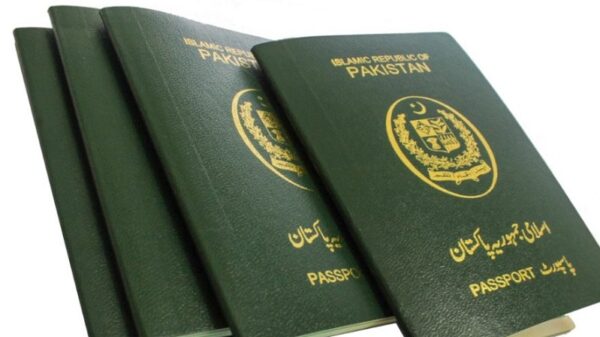Provincial civil service associations are threatening to move court over a controversial rule change that opens up more than 800 new provincial positions to members of the federal bureaucracy.
As per the notification issued on 12 March 2021, the Establishment Division changed the Rule 17 of the Civil Service of Pakistan (Composition and Cadre) Rules, 1954. As a result, the share of federal bureaucrats in the provincial bureaucracy has increased from 299 seats to 1121.
Tariq Malik spokesman of The All Pakistan Provincial Civil Services Association (APPCSA) strongly rejected the amendment and vowed to vigorously pursue the pending petitions related to the encroachment of the federal bureaucracy upon the provincial bureaucrats in the high courts.
He said that the Rule 17 of the Civil Service of Pakistan (Composition and Cadre) Rule, 1954 in the Peshawar High Court (PHC). He said that a similar petition was pending before the Islamabad High Court (IHC). We will also challenge the said notification before the appropriate forum, he said.
After the amendment, the Pakistan Administrative Service (PAS) formerly known as District Management Group (DMG) also keeps five posts of additional chief secretaries/members Board of Revenue in Balochistan, 21 in Punjab, 16 in Sindh and 11 in Khyber-Pakhtunkhwa (KP) – besides retaining four posts of chief secretaries in four provinces.
As far as the posts of division commissioners and administrative secretaries are concerned, the federal took 30 seats in Balochistan, 85 in Punjab, 67 in Sindh and 47 in KP total 229 seats. Likewise, there are 25 deputy commissioners in Balochistan, 117 in Punjab, 59 in Sindh, and 67 in the KP – totaling 268 seats; and 26 additional deputy commissioners in Balochistan, 155 in Punjab, 85 in Sindh, and 52 in KP – totaling 318 seats.
Likewise, a total of 247 seats of assistant commissioner handed over to the federal bureaucrats include 21 in Balochistan, 65 in Punjab, 98 in Sindh and 63 in KP.
According to the APPCSA spokesman, the federal government can take control of the entire province through its chief secretary and such a large number of administrative officers in respective provinces, which practically made the provincial governments and assemblies, irrelevant.
Naveed Shehzad Mirza deputy commissioner Hafizabad and the incumbent President of the Punjab Management Service Officers Association said that this amendment was made in violation of Article 240 of the constitution which deals with the bureaucracy.
Under clause (a) of the said Article, in the case of the services of the federation, posts in connection with the affairs of the federation and All-Pakistan Services, by or under Act of Parliament. Clause (b) on the other hand empowered the Provincial Assemblies to deal with the “posts in connection with the affairs of a province.”
When asked the reforms allowed absorption of the provincial officers in the federal bureaucracy, Mirza said the establishment division had offered this as “lollypop” to provincial bureaucrats.
He said that after absorption the provincial officer will be at the bottom of the seniority of federal bureaucracy. Moreover, the officer of Punjab could be posted to Balochistan under these arrangements, he said.
A joint declaration issued by Presidents of Management Services Officers Association of Punjab Naveed Shahzad Mirza, Khyber Pakhtunkhwa Farhatullah Marwat and Balochistan Tariq Ramzan denounced the notification of the establishment division as illegal.
It stated that “the Pakistan Administrative Service (PAS/Ex CSP) has earmarked for themselves a huge number of provincial posts. By doing so, they have usurped the authority of the Provincial Assemblies vested in the Provincial Assemblies under Article 240(b) of the Constitution. Moreover, by earmarking more Federal posts for themselves they have usurped the authority of the Parliament as enshrined in Article 240(a).”
Special assistant to the prime minister on establishment Mohammad Shehzad Arbab on the other hand is of the view that recent changes in cadre schedule of Pakistan Administrative Service (PAS) were made, keeping in view the unwieldy cadre strength of the service, and it is an attempt to rationalize the cadre strength in line with the available officers.
According to him, this has been done as part of the civil service reforms, and about 729 posts of PAS cadre have been opened up for promotions and induction of Provincial Management Service (PMS)/Provincial Civil Service (PCS) officers of all provinces.
In 1993, a post-sharing formula was decided between the Federation and the provinces and the percentages therein were applied to full cadre strength of the provinces. This application of percentages to total number of posts intimated by the provinces took the sanctioned seats of PAS to almost 1739 in the provinces. However, the actual number of officers available for posting to provinces was not sufficient and there was a persistent shortage of PAS officers in provinces.
The government is of the opinion that in order to overcome these shortages, an exercise was started in 2019 to identify the posts where PAS officers had not been posted historically but such posts were being used for calculation of cadre strength of PAS. After identification of such posts, in consultation with provinces, it was decided that these posts should be subtracted for the purpose of application of percentages decided under the 1993 formula.
After deduction of number of seats, where PAS officers were never posted, the post sharing formula was applied on the remaining seats which brought down the cadre strength of posts in Provinces to 1061 from 1739 in BS-17 to BS-20.
This rationalization of cadre strength will serve two purposes. On the one hand, it will reduce the shortages of PAS officers in provinces, while on the other hand, it has given the provinces leverage of 678 posts, deducted from PAS Cadre, which can be utilized for promotions of Provincial Services Officers.
Further, in addition to above 678 seats, the Federal Government has decided to induct 51 BS-19 officers of Provincial Management Services (PMS) and Provincial Civil Services (PCS) into Pakistan Administrative Service against the cadre strength of Service in Federal Secretariat.









